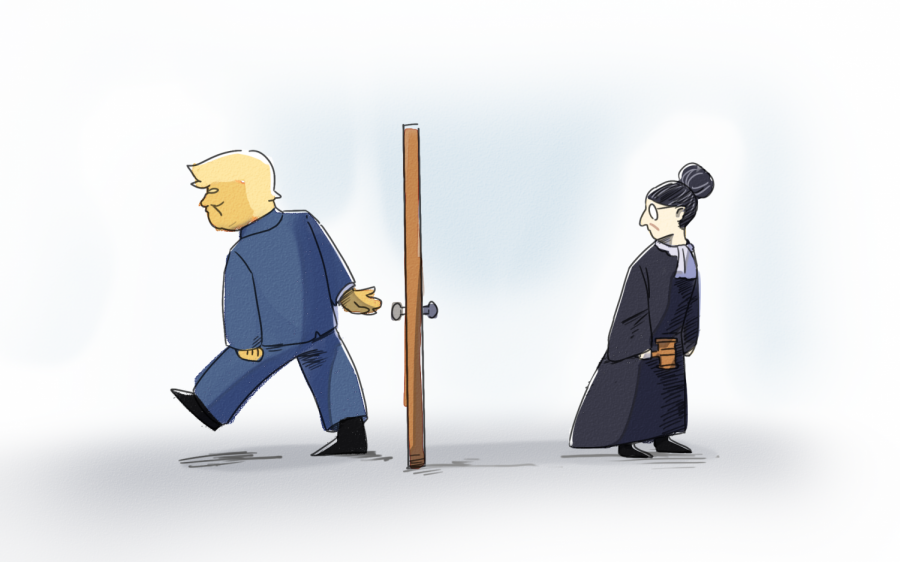RBG: America’s leading feminist
October 15, 2020
America is commonly prided on how many opportunities they give to minorities, especially when compared to other countries. However, this didn’t happen overnight. Although the 19th Amendment in 1920 gave women the right to vote and the Voting Rights Act of 1965 outlawed discrimination in terms of voting, more than fifty years later, the American government is still sparsely populated with minorities. Instead, a large chunk of the group is white, middle-aged men. Despite this, American minorities have gained rights exponentially in the last century in terms of politics, and most of that was due to Ruth Bader Ginsburg.
Ginsburg was a leading activist for equal rights, especially women’s rights. She constantly spoke out against discrimination and believed that everyone should be able to receive the same treatment and opportunities. This belief stemmed from her own experience of sexism, which she constantly dealt with during her studies at Columbia University, where she graduated first in her class. Reader’s Digest states that one teacher “even offered to give Ginsburg answers on a test in exchange for sex.” She fought against those who believed women to be the weaker sex by beginning to teach her students about women’s rights in the field of law.
During her term in government, Ginsburg opened political doors that no one had even known were there. She first joined the government sphere in 1970 after helping lead the American Civil Liberties Union to argue what History calls “six landmark cases on gender equality before the U.S. Supreme Court.” After five of these successfully passed, former President Jimmy Carter, inspired by her virtue and determination, personally added her to the U.S. Court of Appeals to help continue the fight for gender equality. From there she was nominated to the Supreme Court under former President Bill Clinton, becoming the second woman, and first Jewish woman, to hold said position.
However, that’s not all “RBG” did. Along with fighting for women’s rights, she also fought for the disabled, the LGBTQ community, and the undocumented. She was the first justice on the Supreme Court to perform same-sex marriage ceremonies, a feat that many considered radical at the time. According to the Human Rights Campaign, she also “joined Justice Kennedy’s majority decisions in many landmark cases in LGBTQ civil rights history, including Romer v. Evans in 1996, Lawrence v. Texas in 2003, Windsor v. U.S. in 2013 and Obergefell v. Hodges in 2015.” According to Oyez, Ginsburg also voted to strike down Sessions v. Dimaya, a law that included the Immigration and Nationality Act, which stated that a “non-citizen convicted of an aggravated felony is subject to deportation.”
Ginsburg died on Sept. 18, 2020, after losing her battle to pancreatic cancer. Her time before and during the Supreme Court has forever defined what it means to be a feminist and fight for her rights. Without her impact, many Americans would not have the opportunities that they have today, and she should forever be remembered for her time.
Ginsburg once said, “I’m a very strong believer in listening and learning from others.” Because her death leaves an open chair in the Supreme Court, Republicans and Democrats alike are fighting to take it. However, many signs are pointing towards Amy Coney Barrett being the one to take her spot.
Nevertheless, America should take careful consideration when replacing Ginsburg, seeing as though it will not be an easy transition for anyone. RBG has forever left her mark on history, and America has very large shoes to fill. American equality is not quite what the 19th Amendment or the Voting Rights Act of 1965 had in mind, but hopefully, if those in a position of leadership continue to follow Ginsburg’s footsteps, America might just be one step closer to fulfilling the real American dream.



